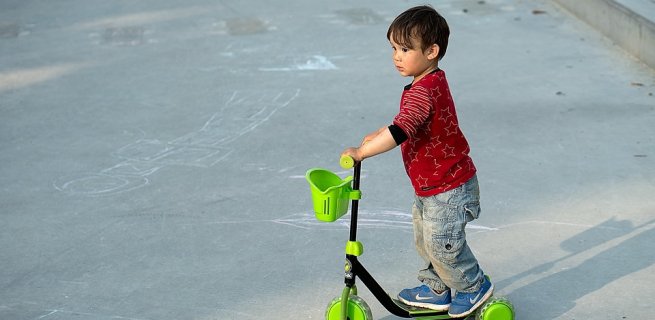Most of us remember being taught about stranger-danger when we were young, and we may have reiterated the lesson to our own children. But do we have it wrong? Instead of teaching kids to fear harm from strangers, should we be focusing more on making them wary of those closest to them?
According to statistics from the Australian Institute of Criminology (AIC) and national child advocacy organisation Bravehearts, the overwhelming majority of child sexual abuse is carried out by trusted people who are known to the child, and the societal focus on the stereotype of a shadowy stranger can actually take awareness away from the real problem.
How much child abuse is perpetrated by strangers each year?
According to figures from the AIC, strangers are responsible for around 10% of child abuse cases every year. In the remaining cases, children are abused by people who are either in their immediate family or who are known to them and their immediate family.
Bravehearts states that one in five Australian children will suffer some form of sexual abuse before they turn 18, and in 85% of cases, the perpetrator will be known to the child.
That children can be in danger from the people they know and trust, from religious leaders to teachers, also appears to be borne out by the cases of sexual abuse currently being heard as part of the Royal Commission.
What legal protections are in place?
There are a range of laws in place governing child sexual abuse. Some common child sex offences listed in the Crimes Act 1900 include:
- Act of indecency. Committing an act of indecency with a child under the age of 10 is a serious offence, which comes with a maximum penalty of seven years’ imprisonment. According to this legislation, an act of indecency is one that a “right minded” person would consider contrary to community standards of decency.
- Aggravated sexual intercourse with a child aged under 16 years. This charge is used in cases where a person is accused of having sexual intercourse with a child aged over the age of 14 and under the age of 16. The maximum penalty is 12 years’ imprisonment. For children aged 10-14 years the maximum sentence goes up to 20 years, and a for a child aged under 10, the maximum penalty rises to life imprisonment with a non-parole period of 15 years.
- Attempt sexual intercourse with child under 10 years. Being convicted of attempting to have sexual intercourse with a child under 10 years can lead to a prison sentence of up to 25 years.
- Groom a child under 16 years for unlawful sexual activity. This charge applies to people over the age of 18 who are accused of intentionally meeting a child, or travelling with the intention of meeting a child with the intention of procuring them for sexual activity, either with themselves or with someone else. This offence comes with a maximum penalty of 15 years for a child under the age of 14, or 12 years for a child aged 14-16.
Apart from the laws, there are a number of things parents can do to educate their children about their personal safety.
How can we help protect children?
A guide published by the ACT Government backs up the need to educate children beyond stranger danger. The guide recommends educating children about situations that might be risky, rather than about people who might seem dangerous. Parents are urged to talk to their children about their personal safety, and teach them about their bodies and that it’s okay to say “no” if someone touches them inappropriately. The guide also recommends making a list of “safe” people children can go to for help if they need to.
When the stranger-danger warning goes too far
While it’s important to educate children about dangers, it’s also important not to frighten them unduly.
In an extreme case in the US, a group of family members is facing charges after allegedly arranging the ‘fake’ kidnapping of a six-year-old boy in a bid to teach him the dangers of talking to strangers.
The kidnapping was staged by a colleague of the boy’s aunt, who allegedly abducted him as he got off the bus from school, threatened to nail him to a wall, and told him he would never see his parents again. The man also allegedly showed him a handgun before driving him to his own home and locking him in the basement for four hours.
The family members were all arrested and charged with kidnapping and child abuse, and the boy was removed from his immediate family and placed in the care of other relatives.
Society’s view of the child abuser being an older, creepy looking man hiding in the bushes is simply not generally accurate. The danger is that by continuing to put forward these stereotypes, the real problem could be largely swept under the carpet, leaving more children at risk and fingers pointed at the wrong people.











